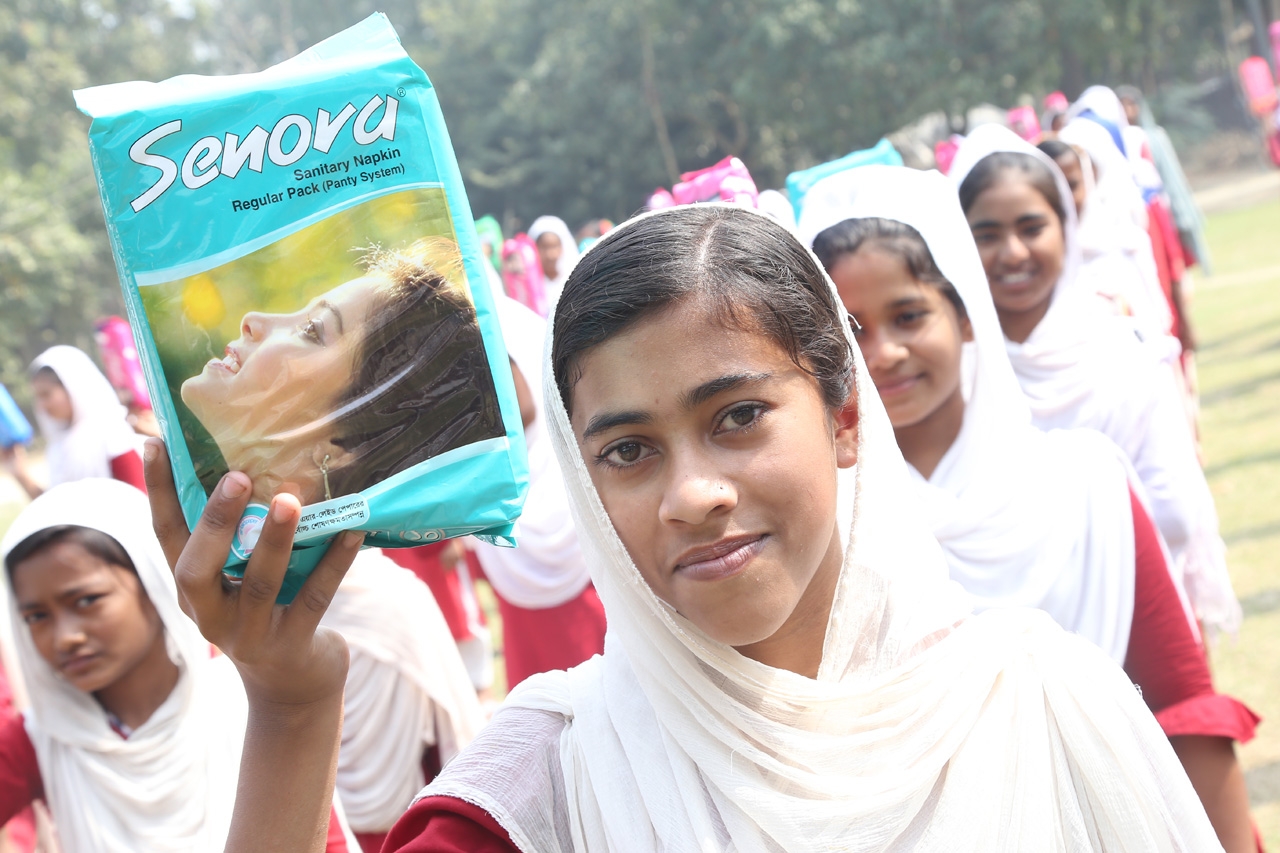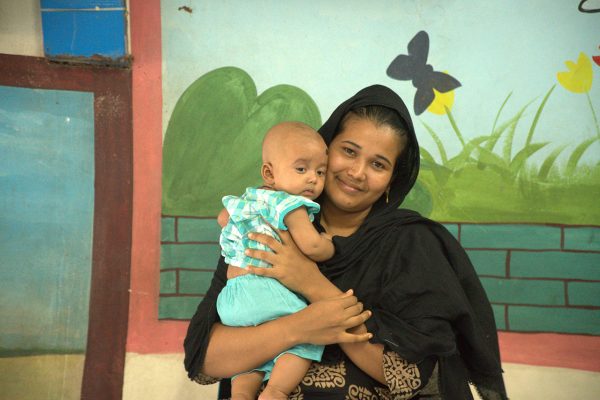Breaking the Taboo: Managing Menstrual Hygiene at School
Reading Time: 3 minutes
Every year on 28 May, nonprofit organisations, government agencies and the private sector come together to celebrate Menstrual Hygiene Day, and advocate for the importance of menstrual hygiene. This year’s theme is action and investment in menstrual hygiene and health. Since the inception of BRAC’s water and sanitation programme in 2006, it has taken a holistic approach in addressing menstrual health, working closely with the government and other stakeholders to improve the situation.
Menstrual hygiene management is defined as women and adolescent girls using clean menstrual products to absorb or collect blood, that can be changed in privacy as often as necessary for the duration of the menstruation period, using soap and water for washing the body as required, and having access to facilities to dispose of used menstrual products.
Other important factors include accurate and timely knowledge, informed professionals, sanitation and washing facilities, safe and hygienic disposal, availability of safe and affordable menstrual hygiene products, access to healthcare services, positive social norms, and policy advocacy.
Read more: 30 ways BRAC supports girl children
Menstrual hygiene is directly linked in achieving a number of goals, such as SDG 3 (good health and wellbeing), SDG 4 (quality education), SDG 5 (gender equality), SDG 6 (clean water and sanitation), and SDG 8 (decent work and economic growth).
In many cultures, menstruation is considered taboo. As a result, women and girls suffer due to lack of adequate knowledge and facilities. Women with disabilities are affected more as they are less likely to have access to disability-friendly infrastructure.
Read more: Why is menstruation still a problem?
Bangladesh is well ahead in recognising the fact that adequate menstrual hygiene management is a prerequisite for development. In 2012, the National Hygiene Promotion Strategy was launched to improve the water and hygiene sector of Bangladesh. The strategy emphasises this in its personal hygiene domain. To better understand the situation, the strategy is also prioritised in national hygiene surveys.
Bangladesh will soon publish a menstrual hygiene strategy to help accelerate the momentum of meeting the SDG targets. The strategy is aimed to be used as reference for policymakers, planners, managers and practitioners in all parts of the society, including educational institutions and workplaces.
Read more: Periods do not stop during a pandemic
Sexual and reproductive health issues have always been prioritised at BRAC. As of December 2020, BRAC provided 46.17 million people with access to hygienic latrines. Additionally, BRAC also provided 2.1 million adolescent girls from 6,011 secondary schools with separate latrines equipped with menstrual hygiene facilities.
The facilities include wash basins with mirrors and soap trays, plastic paint to ensure easy cleaning, covered waste bins inside the latrines, and dumpers outside the latrines to ensure proper disposal of sanitary napkins and pads. When the dumpers are full, the contents are burnt and hygienically disposed of.
Read more: Walking three kilometres for a bathroom break
To ensure accessibility and availability of napkins in schools, napkin drives are observed annually in BRAC schools. Each student brings a packet of sanitary napkins to school to be stored and used by students throughout the year.

To ensure sustainability of WASH activities at school, a 14-membered school WASH committee and a 24-membered student brigade is formed in each school to ensure representation from teachers, students, parents and staff.
A three-day residential training on WASH is imparted to the student brigade and the members of school management committee, on the importance of hygiene education, menstrual hygiene management, and the sustainability, operations and maintenance of WASH facilities in schools. So far, over 55,000 students and more than 18,000 teachers received this training.
BRAC is also a steering committee member of the Menstrual Hygiene Management platform – an influential Civil Society Organisation that works towards creating an enabling environment to ensure sexual and reproductive health rights including gender equality, influencing relevant policy formulation, facilitating implementation and creating a knowledge base on menstrual health.
Read more: Four ways to change the world of water, sanitation and hygiene
Despite great progress made in the improvement of menstrual hygiene management, much work remains to be done and for that more action and investment is required.
Age-appropriate menstrual hygiene education should be provided at community levels and schools so that girls have adequate knowledge and guidance before reaching puberty.
Availability of gender-friendly WASH facilities should be ensured at schools, public places, workplaces and at healthcare facilities, considering the specific needs of women and girls with disabilities.
Access to affordable sanitary products and safe disposal of them should be boosted through strong public-private partnership. Private sectors should be encouraged to make environment-friendly menstrual products more accessible and affordable, while simultaneously generating additional jobs and incomes.
Taboos should be addressed and positive social norms promoted around the previously stigmatised topic of menstruation.
Men and boys should be engaged in the dialogue, as they have an important role to play in supporting women and girls as fathers, brothers, teachers, employers, professionals, peers or colleagues.
Menstrual Hygiene Management facilities should be accessible by women and girls during emergencies.
Read more: Going beyond the hygiene taboos
Mahjabeen Ahmed is a Manager, Knowledge Management, Innovation and Fundraising, and Md Zillur Rahman is the Programme Head of BRAC Water, Sanitation and Hygiene (WASH) Programme





